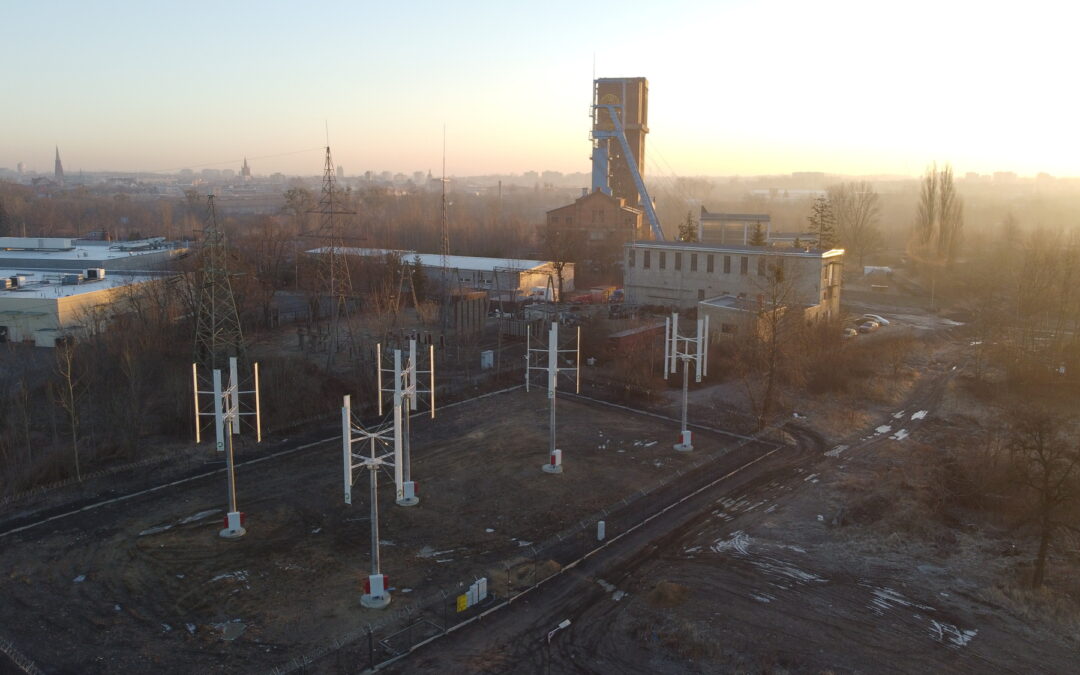Poland’s biggest supplier of electricity, Tauron, has launched the country’s first functioning microgrid – a small network that guarantees energy supplies to consumers connected to it even in extreme situations.
The grid, which is located at the site of a former coal mine, is supplied by solar and wind generators, as well as gas, and currently provides electricity to 54 households across an area of 9,000 square meters.
A microgrid is a physically separate group of electricity sources and loads connected to consumers, in which stability of the power supply is guaranteed by energy storage and stabilising sources.
While usually connected to the wider grid, they are also able to function autonomously in “island mode” when necessary. They thus improve the security of supply and can provide emergency power.
Poland’s first such microgrid (pictured above) is now being tested at the site of the former Szombierki coal mine in the Silesian town of Bytom. It consists of two photovoltaic installations, five wind microturbines, a gas generator, energy storage, and an innovative transformer station.
The grid – which will also be equipped with security and monitoring systems, lighting and a weather station – currently provides electricity to 54 households and covers an area of 9,000 square meters.
The “heart” of the installation is the microgrid management system, which coordinates the work of all its elements and maintains the energy balance and parameters while it is working off-grid.
“As the largest distribution company in the country, we are looking for solutions that ensure a stable supply of electricity to all customers, regardless of where they live,” said Artur Warzocha, Tauron’s deputy CEO. Microgrids “have great potential, especially in hard-to-reach places at the ends of the power grid,” he explained.
The process of switching the microgrid between modes is designed in such a way that consumers will not notice the difference, Tauron say.
“The microgrid is a technologically advanced response to the increasingly noticeable trend to integrate distributed sources into larger structures,” Warzocha added. “The ability to work on an ‘island’ will provide access to energy even in the event of a blackout or power outages caused by sudden weather phenomena.”
Poland’s grid code currently prohibits working in island mode while using the distribution network operator infrastructure, but Tauron hopes to develop rules of cooperation to allow off-grid functioning to be permitted.
“We want to introduce the microgrid being tested in Bytom to our sales offer as a ‘made to measure’ solution,” said Warzocha. “Growing interest in microgrids will help to develop distributed energy sources and cheaper energy storage technologies.”
Main image credit: Tauron press materials

Ben Koschalka is a translator, lecturer, and senior editor at Notes from Poland. Originally from Britain, he has lived in Kraków since 2005.




















